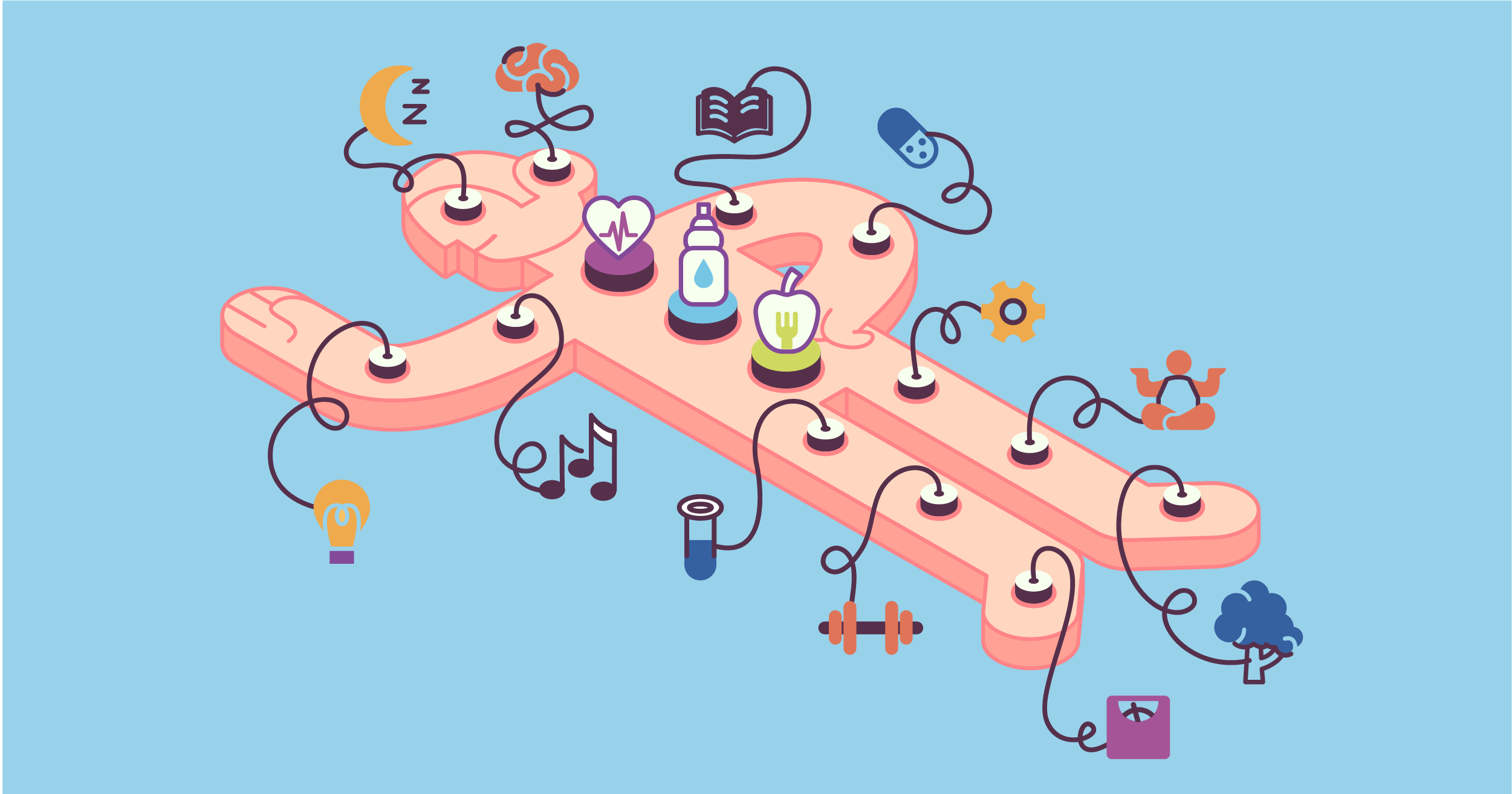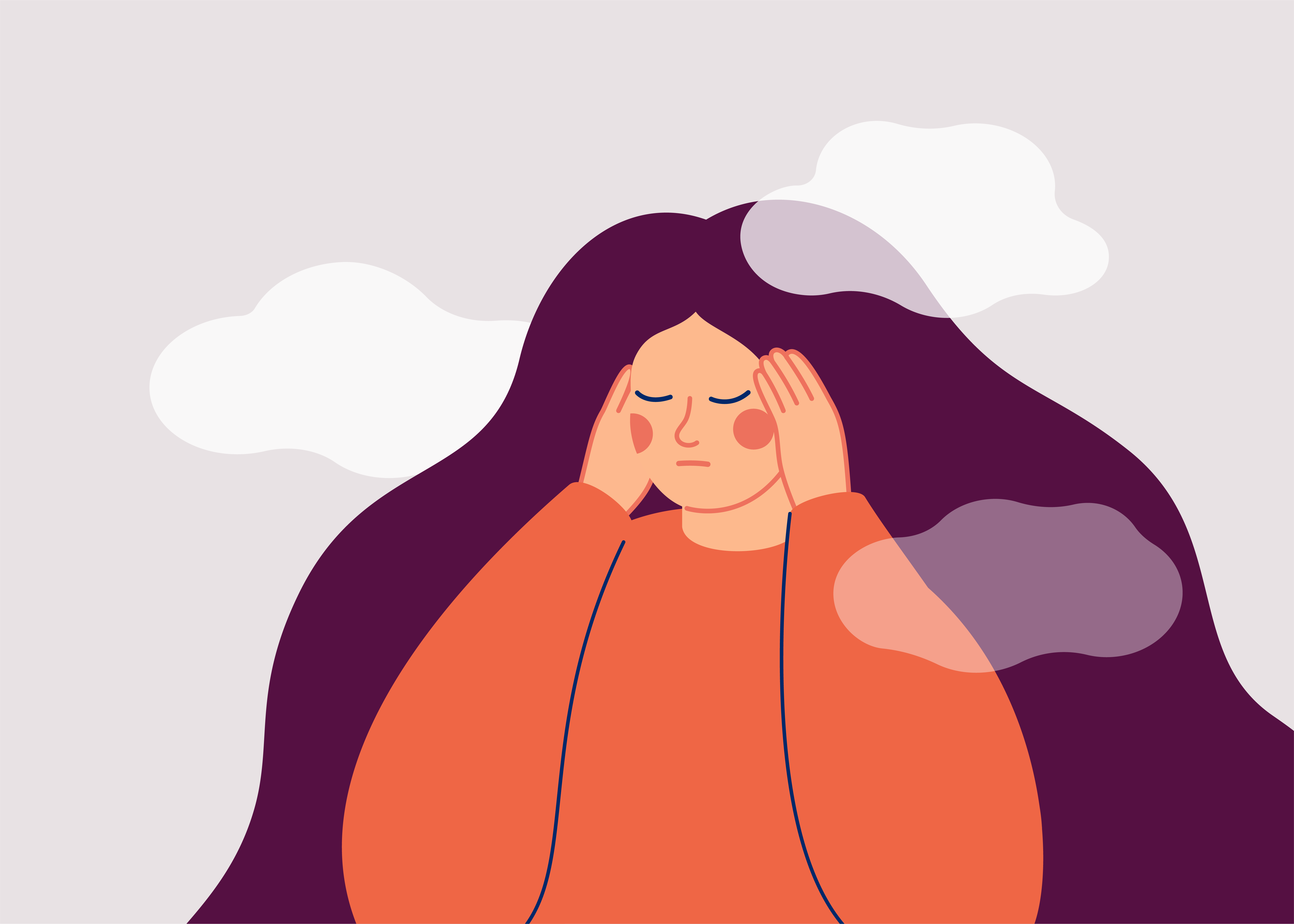Brain cloudiness or “fog” is a very real set of symptoms for many people, especially as the COVID-19 pandemic has impacted our lives. Though not a medical condition, or even a medical diagnosis, brain fog can impede your mental capacity and significantly reduce your quality of life if left unaddressed.
Clouded or foggy thinking impairs your ability to acquire and process information which can cascade into poor judgment and behavior. Brain fog can manifest itself in several ways, from the mundane to very serious.
Common symptoms of brain fog include:
- Inability to focus
- Inability to process information
- Decreased problem-solving
- Memory issues
- Confusion and disorientation
- Verbal communication issues
- Spatial processing issues
You may also experience:
- Physical and mental exhaustion
- Lack of motivation
- Difficulty getting your thoughts together
- Difficulty communicating your thoughts verbally
What Causes Brain Fog?
Covid-19 – Clinicians have seen lingering mental fog in those who have had COVID-19. This fog has included neurological symptoms such as headache, fatigue, memory loss, confusion, difficulty focusing, and dizziness. In some patients, it can impact the memory pathways, cause stroke, or reduce blood flow to the brain. These symptoms may be due to the immune system’s response rather than the virus itself, however.
Stress – Chronic levels of stress can cause mental fatigue. When your body perceives a stressful situation, it activates the sympathetic nervous system, or the fight-or-flight response. This response triggers the release of epinephrine (also known as adrenaline) and norepinephrine, and ultimately takes energy away from your body’s typical functions and diverts them towards the stressor.When your brain gets tired because it’s been dealing with stressful situations for too long you can feel tired, and find it harder to focus, think, reason and concentrate. Stress also causes increased blood pressure, weakens the immune system and triggers symptoms of anxiety and depression, which further contribute to mental fatigue and brain fog.
Lack of Sleep – If you’re not getting great sleep at night your brain is not able to clear out the day’s “junk” and reset. If you’re sleeping too little or not getting good quality sleep, or are exposing yourself to too much blue light before bed, your brain can’t function properly, which could lead to cloudy thinking and judgment. In the case of blue light exposure close to bedtime, the blue wavelengths decrease the hormone melatonin that is essential for deep REM sleep. Both REM and non REM sleep is required to consolidate and process memories from the day. For 25 proven tips to get better, restful sleep, check out our recent blog post.
Hormones – Pregnancy brain anyone? Many women who are pregnant or in menopause can experience a lack of mental clarity and forgetfulness as a result of fluctuating hormone levels. In fact, one study found that 60 percent of women have difficulty concentrating during menopause.
Medication – Certain medications—both prescription and over the counter—are known to cause brain fog as a side effect. If you’ve recently been put on a new medication and find yourself experiencing an inability to focus, you should speak to your doctor. Your dosage may need to be adjusted or you may need an alternative medication.
Diet – Your diet plays a key role in how your brain feels. Several food additives such as MSG and aspartame can cause memory issues, along with other health concerns. Vitamin B12 contributes to the formation of red blood cells and the maintenance of your central nervous system, so when you become deficient you are likely to become fatigued. If you’re not getting the right nutrients for your body or are eating foods that your body is sensitive or allergic to (peanuts, gluten and dairy are known culprits), brain fog can be a consequence.
Medical Issues – Most of the time brain fog is a benign condition. However, if you find that you’re in general good health and are taking care of yourself and still have brain fog you should consult your doctor to see if there are any underlying causes. Certain medical conditions, such as chronic fatigue, fibromyalgia, anemia, migraines, hypothyroidism, or blood glucose issues can have a direct effect on your brain’s performance. Having these conditions under control is key to gaining clarity and eliminating brain fog.
Top 5 Best Practices For Better Focus:
Figure out the source – is it temporary or long term? Can you do something about it? Finding and fixing the root cause of your memory issues can help reduce and may even reverse the effects of brain fog.
Reduce Stress – When we’re constantly stressed our brains don’t have a chance to relax and reboot. Reducing our stress is key to reducing brain fog. Try deep breathing, relaxation exercises, and meditation to help reduce stress. Brain Health Science’s can help you overcome the symptoms of chronic stress that slow your brain function down, relax you and help you gain clarity of thought. Our app, BrainTap, can also help you regulate unwanted emotions to prevent brain fog from occurring in the first place. BrainTap provides enhanced meditation with very little effort on the user’s part.
Get Better Sleep – Sounds easy enough but most people are not getting enough sleep and the sleep they’re getting is not good quality, restorative sleep. Ensuring you’re getting proper amounts and quality of sleep will go a long way to eliminating brain fog. To get a good night’s sleep get good exercise during the day, don’t eat too late in the evening and try to go to bed at a reasonable hour. And using BrainTap on a regular basis helps prepare your mind for deep, restful sleep by balancing the brain.
Get Moving. Exercise not only builds up muscles and improves our cardiovascular system, but it also benefits your brain. Physical activity helps improve sleep, circulation, and memory and clears out the cobwebs from the corners of your brain. It can also enhance memory and reduce anxiety and stress, which are all triggers for brain fog.
Adopt Healthy Habits – If you are a smoker, try to reduce or eliminate your smoking routine. If you have poor eating habits or consume large amounts of sugar, try to take small steps to improve your diet. Increasing your intake of Vitamin B-12 has been shown to promote healthy brain function. Also try to avoid or reduce foods that can cause allergic reactions such as MSG, aspartame, dairy and grains.
Take a brain break– Taking a few minutes away from challenging daily tasks is a great way to reset the brain. And using tools such as the BrainTap app to supercharge your break can clear out brain fog in a few short minutes.
If you’ve ever experienced brain fog, you’re not alone. We’ve all had days (or weeks, or even months) when we felt as though we’re not operating at full capacity. Brain Health Sciences is here for you. We offer a simple and effective “brain entrainment” app to help regain your sharpness and dexterity and lift the cloud of brain fog that is holding you back. You’ll be able to concentrate more fully, think more clearly, and focus on the things that matter to you.
Our exclusive Personal Wellness Bundle combines 19 unique “Find Clarity” BrainTap sessions, along with over a hundred more, all focused on improving your mind, body, and spirit. If increasing your mental clarity and focus is important to you, get started today.



